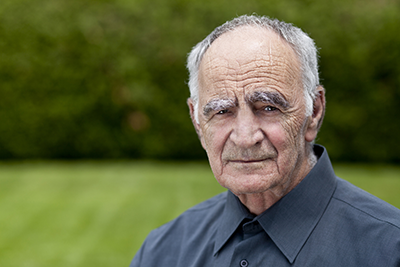Partnering With Community Groups May Improve Outcomes in Older Adults Who Hoard

Hoarding disorder often begins in early adulthood, but the persistent difficulty discarding or parting with possessions can intensify with age. Coupled with increasing medical and cognitive challenges, such behavior can have a devastating effect on the living environment of hoarding individuals.
“A thorough psychiatric evaluation that identifies psychiatric, medical, and cognitive comorbidities is essential to the effective management of hoarding in the elderly,” said David Roane, M.D., of Mount Sinai Beth Israel Medical Center during a workshop Monday at APA’s Annual Meeting. However, he added, most individuals will require additional hands-on assistance. By being aware of community-based organizations who are familiar with the circumstances of hoarding seniors, psychiatrists may be able to increase the likelihood a patient with hoarding disorder receives the support he or she needs, he said.
Roane, who chaired the workshop “It Takes a Village: Meeting the Challenge of Severe Hoarding,” is an associate professor of psychiatry at Icahn School of Medicine at Mount Sinai and the associate chair for education in the Department of Psychiatry at Mount Sinai Beth Israel. He is currently overseeing a study examining the effects of cognitive-behavioral therapy (CBT) on seniors with DSM-5 hoarding disorder referred from a community-based organization in lower Manhattan.
“Even when elderly individuals recognize the consequences of hoarding and are motivated to change, they may be unable to benefit from structured psychotherapy because of medical and cognitive impairment and because they lack a supportive social network,” Roane told Psychiatric News.
During the workshop, participants discussed how community-based organizations often work closely with individuals with hoarding disorder—offering everything from companionship to assistance with discarding unneeded possessions and/or limiting acquisition. Such groups can also work on increasing/sustaining readiness for change, practice skills necessary to recidivism prevention, and offer ongoing connection to support services. The participants acknowledged that dividing the roles of the therapist and the community agency can be challenging, and offered tips on how best to work as an integrated team.
“Targeted psychotherapy in the context of social support can effectively improve the living conditions and mental health of seniors who hoard,” Roane said.
Roane was joined by Erik Bengtsen, M.D., who during his psychiatry residency evaluated and treated elderly patients with hoarding disorder with CBT; Jack Sherrrat, L.C.S.W., a social worker with Project ORE, Educational Alliance, a program in New York City that connects elderly patients in crisis with care; and Alyssa Landers, a who gained first-hand experience counseling hoarding individuals in their homes and in community senior centers while earning a Master’s degree in psychology.
(Image: iStock/NADOFOTOS)
|
|
|
|
|


